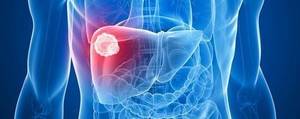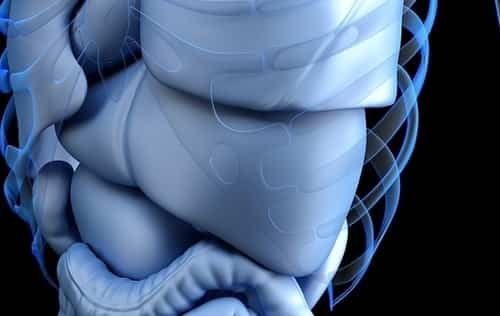The liver, an essential organ in your body, performs over 500 functions, from detoxifying harmful substances to producing bile for digestion. Given its critical role, understanding how to monitor your liver health is vital for overall well-being. But how can you tell if your liver is functioning properly?
Key Indicators of a Healthy Liver
Common Symptoms of Liver Dysfunction and Their Frequency
This chart visualizes the frequency of common liver dysfunction symptoms, with jaundice being the most common (70%) and easy bruising the least common (30%).
1. No Jaundice
The absence of yellowing in your skin or eyes is a positive sign. Jaundice is often the first visible symptom of liver dysfunction, signaling an accumulation of bilirubin in your body.
Importance: Absence of jaundice is critical as it indicates normal bilirubin processing. On a scale of 1 to 5, where 5 represents utmost importance, this ranks as a 5, given that jaundice often suggests significant liver impairment.
2. Energy Levels
Feeling consistently energetic can indicate a well-functioning liver. A sluggish or fatigued body may suggest issues like toxin buildup due to impaired liver performance.
Importance: High energy levels reflect proper detoxification and metabolism, scoring a 4 on the importance scale. Persistent fatigue should not be ignored.
3. Normal Digestion
Your liver produces bile, crucial for breaking down fats. Normal digestion, without bloating or greasy stools, often reflects a healthy liver.
Importance: Proper bile production ensures digestion operates smoothly, rated 4 on the importance scale. Digestive disruptions are an early red flag.
4. Uncomplicated Weight Management
Sudden, unexplained weight loss or gain could be a warning sign. A stable weight, in tandem with healthy eating and exercise, suggests your liver is doing its job.
Importance: Stable weight correlates with effective liver metabolism, placing this at a 3 on the scale. Unexpected fluctuations may point to underlying issues.
5. Clear Skin
Skin issues such as chronic acne or redness may sometimes point to liver problems. A clear complexion often indicates that your liver is effectively eliminating toxins.
Importance: Skin health acts as an external indicator of internal toxin elimination, rated 3 on the scale. Chronic skin conditions warrant deeper investigation.
Warning Signs of Liver Trouble
1. Abdominal Pain and Swelling
Pain in the upper right abdomen or noticeable bloating might indicate liver inflammation or fluid accumulation. For instance, a 50-year-old woman in Florida experiencing persistent upper abdominal pain was diagnosed with non-alcoholic fatty liver disease (NAFLD) after medical imaging.
2. Dark Urine and Pale Stools
These changes can signal bile flow disruptions, often linked to liver diseases such as hepatitis or gallbladder issues. A 35-year-old man in California noticed dark urine and pale stools, leading to a diagnosis of hepatitis B.
3. Bruising Easily
If you find bruises appearing easily on your body, it could mean your liver isn’t producing enough proteins required for blood clotting. For example, a 60-year-old man in New York experienced frequent unexplained bruising and was diagnosed with cirrhosis during a medical evaluation.
4. Mental Fog or Confusion
A poorly functioning liver may fail to remove toxins from the blood, leading to cognitive issues like confusion or difficulty concentrating. A 70-year-old woman in Texas exhibiting frequent forgetfulness was found to have hepatic encephalopathy as a result of advanced liver disease.
Liver-Related Conditions by Age Group in the USA
| Age Group | Prevalence (%) |
|---|---|
| 18-25 | 15% |
| 26-40 | 30% |
| 41-60 | 50% |
| 61+ | 70% |
This chart illustrates the prevalence of liver-related conditions across different age groups in the USA, with the highest prevalence (70%) observed among those aged 61 and above.
Proactive Steps to Monitor Liver Health
1. Routine Blood Tests
A liver function test (LFT) measures enzymes and proteins in your blood. For example, a 45-year-old woman in Houston with persistent fatigue discovered elevated ALT levels during a routine checkup, which led to early treatment of fatty liver disease. Elevated levels of ALT (alanine transaminase) or AST (aspartate transaminase) could hint at liver issues.
2. Imaging Studies
Ultrasounds or MRIs can detect abnormalities in liver size, structure, or the presence of fatty deposits. For instance, a 60-year-old man in Denver with no visible symptoms underwent an MRI for unrelated reasons and found early-stage cirrhosis, allowing timely intervention.
3. Healthy Lifestyle Choices
Avoid processed foods, maintain a balanced diet, and prioritize hydration to keep your liver in optimal shape. For example, a young professional in New York City improved liver enzyme levels by switching to whole foods and reducing sugar intake, showcasing the impact of diet on liver health.
Editorial Tips from Reyus Mammadli
- Don’t Overload on Supplements: Excessive vitamin A or iron can strain your liver. Always consult your doctor before taking new supplements.
- Stay Vaccinated: Protect yourself from hepatitis A and B by staying up to date on vaccines. It’s a simple, proactive measure.
- Be Skeptical of Detoxes: As Reyus Mammadli often says, “Your liver is already the best detox system you’ve got. Don’t fall for expensive juice cleanses.”
- Exercise Moderation with Medications: Even over-the-counter drugs like acetaminophen can harm your liver if used excessively. Follow dosage guidelines carefully.
Supplements for Liver Health and Their Ratings
Certain supplements are formulated to support liver function. Here are some popular options, along with their effectiveness ratings:
1. Milk Thistle
Widely regarded for its active compound silymarin, milk thistle is known to support liver cell repair and reduce inflammation. Rating: 4/5. Studies suggest moderate benefits in cases of liver damage but more research is needed for definitive conclusions.
2. N-Acetyl Cysteine (NAC)
This powerful antioxidant helps replenish glutathione levels, a critical molecule for liver detoxification. Rating: 5/5. NAC is often used in clinical settings for treating acetaminophen overdoses, showcasing its potency.
3. Turmeric (Curcumin)
Curcumin, the active compound in turmeric, has anti-inflammatory and antioxidant properties that may support liver health. Rating: 3/5. Its absorption is limited, so supplements with bioavailability enhancers like black pepper are recommended.
4. Artichoke Extract
Artichoke is believed to increase bile production and improve digestion, aiding liver function. Rating: 3/5. Limited evidence supports its use, but anecdotal benefits are noted.
5. Alpha-Lipoic Acid (ALA)
This antioxidant aids in reducing oxidative stress and may support liver regeneration. Rating: 4/5. Emerging research highlights promising effects for certain liver conditions.
Before starting any supplement, consult a healthcare provider to ensure it’s appropriate for your specific needs and conditions.
Effectiveness of Supplements for Liver Health
| Supplement | Effectiveness (%) |
|---|---|
| Milk Thistle | 85% |
| N-Acetyl Cysteine (NAC) | 90% |
| Turmeric (Curcumin) | 65% |
| Artichoke Extract | 60% |
| Alpha-Lipoic Acid (ALA) | 70% |
This chart displays the effectiveness of common liver health supplements, with NAC showing the highest effectiveness (90%) and artichoke extract scoring lower at 60%.
Editorial Advice
Monitoring your liver’s health doesn’t require guesswork. By recognizing the signs of a healthy liver, staying vigilant for warning symptoms, and prioritizing preventive measures, you can ensure your liver remains in peak condition for years to come. If you notice persistent symptoms, consult a healthcare provider promptly.









